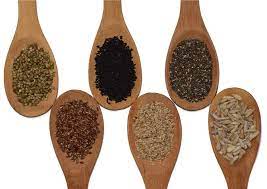Symptoms of deficiency in vitamins and minerals: preventive steps to take
A healthy diet is essential for preserving general health. Whole foods offer you the important elements, such as vitamins and minerals, that your body needs to maintain overall well-being. On the other hand, a diet deficient in essential nutrients may cause a number of disagreeable symptoms that point to possible inadequacies.
Because they fill in the gaps and enhance nutrient absorption, multivitamins might be helpful for those who have greater nutritional demands or find it difficult to maintain a balanced diet.
 Depending on which particular vitamin is deficient, several indications and symptoms might indicate a vitamin deficiency, according to Dr. Inshara Mahedvi, Consultant-Dietician, Motherhood Hospital, Lullanagar, Pune. Deficiencies in vitamins and micronutrients might manifest as weakness, fatigue, poor energy, and dizziness. In more extreme situations, these deficits may cause serious health issues such as reduced mental and physical development in children, blindness, or heightened vulnerability to illnesses.
Depending on which particular vitamin is deficient, several indications and symptoms might indicate a vitamin deficiency, according to Dr. Inshara Mahedvi, Consultant-Dietician, Motherhood Hospital, Lullanagar, Pune. Deficiencies in vitamins and micronutrients might manifest as weakness, fatigue, poor energy, and dizziness. In more extreme situations, these deficits may cause serious health issues such as reduced mental and physical development in children, blindness, or heightened vulnerability to illnesses.
Let’s quickly review mineral and multivitamin deficiencies:
Inadequate calcium levels may cause tingling and numbness in the fingers, as well as abnormal heartbeats. It is well known that calcium regulates muscle and nerve function and helps to maintain strong bones. Although there are no overt symptoms of calcium insufficiency right away, severe instances might produce these ones. Milk and dairy products, lentils, sesame seeds, green leafy vegetables like drumstick and amaranth leaves, and millets like ragi and bajra are good sources of calcium.
In addition to being essential for maintaining healthy bones, vitamin D may also help prevent certain malignancies. Fatigue, bone pain, hair loss, sluggish wound healing, and mood swings, including depressive symptoms, may all be signs of a vitamin deficiency. Long-term vitamin D deficiency may raise the risk of cancer and autoimmune disorders in addition to causing osteomalacia, or weakening of the bones. Oral supplements, increased consumption of foods such as fatty fish, egg yolks, fortified cereals, and milk products, as well as deliberate sun exposure, are the usual treatments for vitamin D insufficiency.
Potassium is necessary for the heart, muscles, and nerves to operate properly. It is essential for getting nutrients into cells and getting rid of waste. Furthermore, it reduces the adverse effects of salt on blood pressure, supporting cardiovascular health in general. Symptoms of a potassium deficit include constipation, numbness, cramping in the muscles, and an irregular heartbeat. Include foods like kidney beans, bananas, prunes, flaxseeds, almonds, potatoes, sweet potatoes, sweet lime, muskmelon, tomatoes, and dried apricots in your diet to increase your consumption of potassium.
Red blood cells, which are in charge of distributing oxygen throughout the body, are made possible by iron. Low iron levels may result in a shortage of red blood cells, which is what is meant to be called anemia. Iron deficiency is more common in several populations, including youngsters, pregnant women, those on a vegan or vegetarian diet, and women who are menstrual. Weakness, exhaustion, breathing difficulties, a fast pulse, a pale complexion, headaches, chilly extremities, painful or swollen tongues, brittle nails, and strange cravings are some of the symptoms associated with anemia. As iron levels continue to decrease, these symptoms may begin mildly and go unrecognized at first, but they may later become more severe. Millets like bajra and ragi, as well as wheat products, may raise iron levels in the body. A rich source of iron includes dark green leafy vegetables like amaranth leaves, as well as lentils like chana dal and rajma.
Red blood cell generation, DNA synthesis, and neurotransmitter function all depend on vitamin B12. Severe B12 insufficiency is characterized by numbness in the limbs, anemia, exhaustion, weakness, swelling of the tongue, memory loss, and cognitive impairment. Because these symptoms are so varied, they may appear gradually or abruptly and go unrecognized for a while. Eating animal products, including fish, poultry, milk, and yogurt, is advised to raise B12 levels. For people who may be at risk of insufficiency, taking a B12 supplement or a multivitamin that contains B12 is recommended.
Folate—also referred to as folic acid—is an essential B vitamin for women who are or will become pregnant. It is important for maintaining normal growth and development and for lowering the chance of birth abnormalities, especially those involving the neural tube (brain and spine). Reduced cell count, big red blood cells, and neural tube abnormalities in fetuses may all be symptoms of a folate shortage. Fatigue, irritability, diarrhea, poor development, and a smooth tongue are signs of a folate deficit. Consume folate and vitamins as directed by your physician.
The synthesis of energy and the health of bones depend on magnesium. A magnesium deficit may cause seizures, numbness, tingling, weakness, nausea, cramping in the muscles, and irregular heartbeats. Increase your intake of foods high in magnesium, such as almonds, cashews, peanuts, spinach, black beans, dark chocolate, fatty fish, and whole grains, to bring your magnesium levels back to normal.
A shortage of vitamin A may result in symptoms including growths on the whites of the eyes and inadequate night vision. Increasing the amount of vitamin A-rich foods in your diet may help stave off or mitigate these problems. Dairy products, eggs, dark leafy greens, and yellow-orange veggies are a few examples of these foods.
Maintaining a nutrient-dense, well-rounded diet is crucial for preventing or treating nutritional deficits. Consume entire foods; however, adding a multivitamin may be helpful if there is a higher risk of nutritional insufficiency. Older people, pregnant moms, and those who adopt restricted diets—such as veganism and vegetarianism—or limited diets deficient in fruits and vegetables are among the groups most at risk. Seeking advice from your healthcare professional is crucial if you are worried about your susceptibility to dietary deficiencies.







